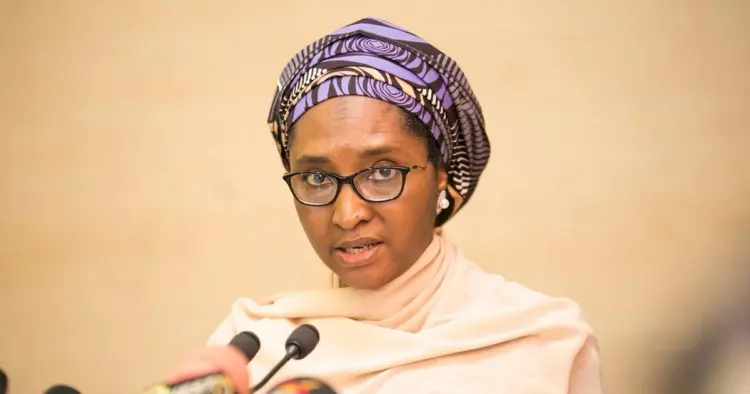FG Budgets N130.5bn For ‘Special’ Interventions In 2022
In a very curious manner, the Federal Ministry of Finance, Budget and National Planning is planning to spend a whopping N130.458 billion on vague intervention programmes under the title of ‘service-wide votes’ in 2022.
The proposed budget estimates are captured under same or closely related items, raising questions about the credibility of the budgetary process supervised by the finance ministry.
A breakdown of the figures showed that, if approved by the National Assembly, the ministry will spend N60,917,999,949 [N60.9bn] on the “special intervention/capital exigencies” at the same time it is proposing to spend N10 billion on “special intervention programmes/projects”.
Apart from that, the ministry will spend N100 billion on “national poverty reduction with growth strategy (FGN commitment, including NSIP upscaling)-capital.”
Interestingly, the same ministry is seeking to spend N25 billion on what is simply identified as “special intervention” outrightly different from the N55 billion for “special intervention Sustainable Development Goals (SDG’s) 1” and another N10 billion for “special intervention SDG’s 2”.
All of this amounts to the N130.5 billion budgetary allocation by the finance ministry in the coming year.
That aside, under the government’s Economic Recovery and Growth Plan (ERGP), the finance ministry is also voting N25 billion for Nigeria Youth Development Fund. The specific nature of projects and activities to be supported by the fund were not provided by the executive for public scrutiny. The different votes are without details and lacking in specification.
Meanwhile, the Federal Ministry of Works and Housing has said it will spend N2.27 billion on construction of an unspecified number of classrooms in undisclosed environment.
Expectedly, there is no location or any further specification of the classrooms. Those who interacted with our correspondent on the said item say the failure of the federal government to provide details of the location of the proposed classrooms was part of efforts to wipe any trace and track of the expenditure.
The Works and Housing Ministry is also planning to spend N6,637 million to complete the building of maternity centres in selected locations across the country. The ministry failed to specify the details of the health centres it said were already under construction.
Whereas the federal government already made specific provisions for named roads and erosion control in zones of the country, the ministry is seeking to spend another N1.57 billion on construction of road and erosion control in North Central, North East and North West.
The budget expenditure for 2022 (aggregate FGN expenditure (inclusive of government-owned enterprises and project-tied loans) is projected to be N16.39 trillion, which is 12.5 per cent higher than the revised 2021 budget of N14.57 trillion.
The proposed retained revenue is N10.13 trillion (including grants and the revenues of 63 government-owned enterprises (GOEs), which is 24.8 per cent more than the 2021 Revised Budget’s retained revenue of N8.12 trillion and a deficit of N6.26 trillion, which represents 3.39 per cent of Gross Domestic Product (GDP).
Reviewing the 2022 federal appropriation bill parameters and key issues yesterday, lead director of the Centre for Social Justice, Eze Onyekpere, said most of the budgetary proposals appear like slush funds for unknown purposes.
“Save 50 per cent of these votes and use the other 50 per cent for the purpose if details are provided,” he simply said.
Like many Nigerians, Barrister Onyekpere said the National Assembly should not approve the ‘frivolous’ votes without details that will not just be shown to the lawmakers but published on the website of the Budget Office of the Federation like other votes.
An NGO, Citizens Wealth Platform (CWP), said the government’s expected revenue of N2.915 billion from minerals and mining is grossly underestimated.
FG Budgets N130.5bn For ‘Special’ Interventions In 2022
The organisation said the National Assembly should engage the mining authorities and the Ministry of Finance to ensure that illegal and private mining of public-owned minerals is stopped and proper accruing revenue estimates included in the budget.
In its recommendation, it demanded full and meticulous implementation of the rules in the 2020 Finance Act requiring automatic deduction at source of past due operating surplus from GOEs and capping cost to revenue ratio of GOEs to a maximum of 50%-50%.
It further recommended that the federal government consider domiciling the accounts of relevant GOEs and agencies in sub accounts of the Treasury Single Account (TSA) and deduct the due percentages of operating surplus at source before transferring the residue to the GOEs and agencies.
“This will ensure that all due operating surplus and portions of due IGR is deducted at source. This is estimated to guarantee FGN operating surplus revenue of not less than N2 trillion,” it stated.
CWP also called for outright removal of fuel subsidies, under recovery or any subsidy on petroleum motor spirit from the proposed 2022 budget. “This will save not less than N2tn and make same available for the Federation Account. Not less than 60 per cent of the savings accruing from abolishing the subsidy should be channeled to dedicated ring fenced (statutory) expenditure in education and health.”












Add Comment